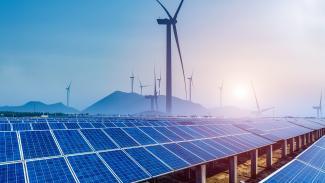-
 1. No Poverty
1. No Poverty
-
 2. Zero Hunger
2. Zero Hunger
-
 3. Good Health and Well-Being
3. Good Health and Well-Being
-
 4. Quality Education
4. Quality Education
-
 5. Gender Equality
5. Gender Equality
-
 6. Clean Water and Sanitation
6. Clean Water and Sanitation
-
 7. Affordable and Clean Energy
7. Affordable and Clean Energy
-
 8. Decent Work and Economic Growth
8. Decent Work and Economic Growth
-
 9. Industry, Innovation and Infrastructure
9. Industry, Innovation and Infrastructure
-
 10. Reduced Inequalities
10. Reduced Inequalities
-
 11. Sustainable Cities and Communities
11. Sustainable Cities and Communities
-
 12. Responsible Consumption and Production
12. Responsible Consumption and Production
-
 13. Climate Action
13. Climate Action
-
 14. Life Below Water
14. Life Below Water
-
 15. Life on Land
15. Life on Land
-
 16. Peace, Justice and Strong Institutions
16. Peace, Justice and Strong Institutions
-
 17. Partnerships for the Goals
17. Partnerships for the Goals
-
 Countries in Special Situations
Countries in Special Situations
-
 Office of the Executive Secretary
Office of the Executive Secretary
-
 Macroeconomic Policy and Financing for Development
Macroeconomic Policy and Financing for Development
-
 Trade, Investment & Innovation
Trade, Investment & Innovation
-
 Transport
Transport
-
 Environment and Development
Environment and Development
-
 ICT and Disaster Risk Reduction
ICT and Disaster Risk Reduction
-
 Social Development
Social Development
-
 Statistics
Statistics
-
 Energy
Energy
-
 Strategy and Programme Management Division
Strategy and Programme Management Division
-
 Subregional Office for East and North-East Asia
Subregional Office for East and North-East Asia
-
 Subregional Office for North and Central Asia
Subregional Office for North and Central Asia
-
 Subregional Office for South-East Asia
Subregional Office for South-East Asia
Expert Opinions & Stories
New index reveals increasing risk in food systems across countries in Asia and the Pacific
Food system risk is increasing across most countries in the Asia-Pacific region in recent years according to the recently launched INFER Framework
INFER uses 95 indicators to produce food system…
As we celebrate the World Environment Day this year, it bears repeating that the world is in the midst of an extinction crisis. Asia and the Pacific sees the most rapid and serious decline in…
Why is the environment-health nexus important for Asia and the Pacific and how to strengthen it?
As countries gathered at the United Nations’ biodiversity conference, or COP15, to agree on the post-2020 global biodiversity framework, policymakers, scientists, and rights advocates reaffirmed…
The recent climate talks in Egypt have left us with a sobering reality: The window for maintaining global warming to 1.5 degrees is closing fast and what is on the table currently is insufficient to…
For those in Seoul looking to avoid a frustrating commute home or needing transportation after a late night out, getting around is now much easier thanks to new “smart mobility” technology.
The…
After two years of human devastation, the world is learning to live with COVID-19 while trying to balance the protection of public health and livelihoods.
For countries in Asia and the Pacific,…
Emerging from the shock of the COVID-19 pandemic, the global economy has been shaken yet again, this time by geopolitical events that threaten to set back the nascent post-COVID-19 economic recovery,…
As the leaders of Asia and the Pacific prepare to head to Glasgow for the 26th United Nations Climate Change Conference of the Parties (COP26), they can be sure that our region will be in the…
Throughout history, zoonotic diseases (diseases transmitted from animals to humans) have made their marks in human history. For example, the bubonic plague, which was transmitted from rodents, is…
Resilient economies are possible
Economic and non-economic shocks such as financial crises, natural disasters, and pandemics leave behind permanent scars in economies and societies and result in major setbacks to development gains…
























